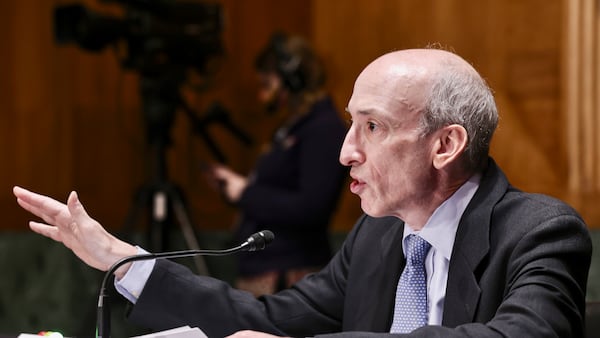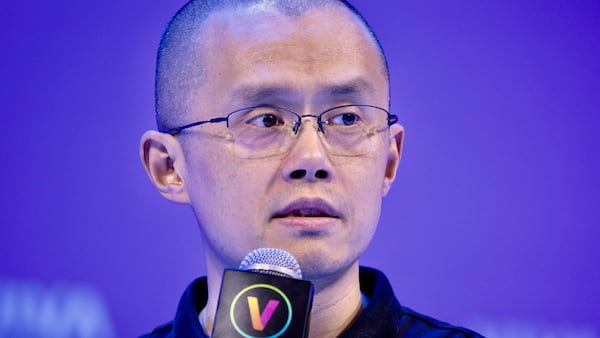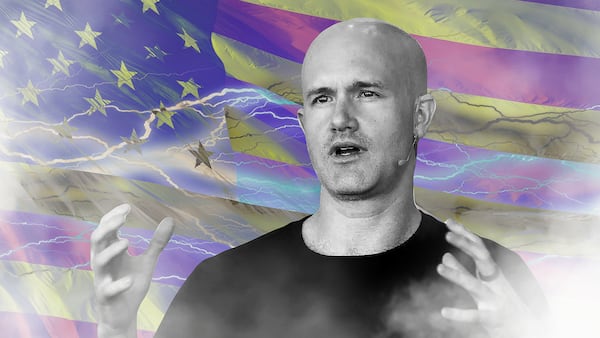- DeFi reporters see opportunities and challenges with big financial players venturing into crypto.
- While big TradFi firms entering the sector has heralded a thaw in the crypto winter, it could eventually mean that protocols’ communities grow more tight-lipped.
By muscling into the crypto sector, institutional investment firms such as BlackRock will open new paths for journalists, DL News reporters believe.
Opening crypto markets to traditional finance houses may also set a “new gold standard” for data providers and analysts, DeFi correspondent Tim Craig said.
BlackRock’s June application for a spot Bitcoin exchange traded fund has added to a wave of optimism that seems to have brought the crypto winter to a thaw.
After crashing from its peak of $69,000 in November 2021 to less than $16,500 a year later after FTX collapsed, the price of Bitcoin last week was above $30,000.
NOW READ: It’s not just Bitcoin. These finance giants are ‘chomping at the bit’ to deploy DeFi
DeFi correspondent Osato Avan-Nomayo sees an expansion in his field — the governance forums of crypto projects.
If big players back these projects, their investments are usually locked by the projects for two years, or so.
The big question, Osato said, is what happens when they can access the tokens again.
“Do they dump them on retail and move on to the next project, or are they true believers and hold on to their tokens?”
Downsides to big players entering crypto
Tim, however, noted a downside to reporting on TradFi-backed projects.
“When you have open protocols, especially ones that are community funded, the developers are quite willing to talk to you,” he said.
“They are really open and honest because they are there for the technology and they want to share that with you.”
‘If you try to reach out to a developer working on a crypto project that’s funded by a big venture capital firm, they’re not going to talk to you.’
— Tim Craig
On the other hand, “if you try to reach out to a developer working on a crypto project that’s funded by a big venture capital firm, they’re not going to talk to you, or if they do they will give you a canned, PR-cleared response.”
NOW READ: Here’s why Cathie Wood’s Ark dumps Coinbase stock just as it’s rising
Osato was less concerned. “Even when people are not upfront about their intentions, sooner or later they are forced to show their hand in a way which might not be apparent in TradFi.”
“We know who the backers are, and sometimes it’s possible to identify the wallets that are holding these tokens. Whenever there is any big movement from these investors it can give us a clue as to what they are doing.
“It can be frustrating sometimes when you can’t get them to answer your questions in a manner that would help you story, but there is always the investigative part down the line.”
Positive developments
Both correspondents saw positive developments for the industry.
“These multi-trillion-dollar asset managers moving into crypto are going to prioritise getting good data,” Tim said.
“They are probably going to push the end of crypto data analysis forward. They may set some kind of gold standard. A lot of people will be looking at BlackRock and asking what data are you looking at? Where do you take it from? Is it Chainalysis? Is it DefiLlama?”
That will influence other investors, Tim said.
NOW READ: Larry Fink says Bitcoin is ‘digitalising gold’ in another sign BlackRock is all-in on crypto
“People will be saying, they have done their due diligence, so we will trust [those data providers] too. It may set the tone.”
For his part, Osato said that “with institutional investors coming in, regulations are definitely going to have to be improved.”
‘There will be some people who see that as a threat, but it’s kind of inevitable that institutional investors will move into crypto’
— Tim Craig
Traditional finance firms have fiduciary responsibilities which they cannot meet without regulatory clarity, he said, “like custody, how investor assets are handled to prevent the kind of co-mingling we saw with FTX and Alameda.”
‘A threat’
So, how do members of the crypto community feel about TradFi powerhouses like BlackRock and Fidelity entering the fold?
“There will be some people who see that as a threat, but it’s kind of inevitable that institutional investors will move into crypto,” said Tim.
“A lot of people would argue that crypto is bigger than them,” he added.
“Even if institutional investors invest in Bitcoin or Ethereum, they can’t really get any influence or control over those networks because they are decentralised.”
NOW READ: Nomura crypto exec on finance ‘land grab,’ the SEC crackdown, and playing the long game
Osato agreed. “There is no feeling that crypto will be diminished by having these big money players come in. They bring much needed liquidity,” he said.
“The feeling mostly is that this is an innovative space, much like the internet. There is a lot of potential for growth but it’s difficult to have that kind of growth if you don’t have the backing of some of the big players.”
Nevertheless, the aims of TradFi investors are not the same as those of crypto believers.
Institutional investors “are not really there because of the technology or because they believe in the principles of what crypto is hoping to achieve,” Tim said.
“They’re often there just to cash in on big trends. Crypto seems to move in waves or bubbles. Every four years there’s a bull market, markets go astronomical and then they come back down again, a bit higher than they were before, until the next time.”
Have you any thoughts about the impact of institutional investment on crypto? If so, I invite you to share them with other readers by writing to me at robert@dlnews.com.



